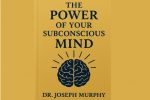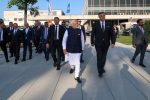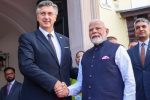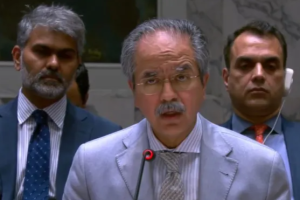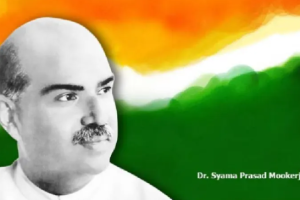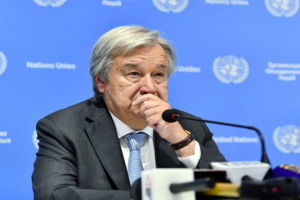In this age, Gandhian paradigm differ hugely on account of myriad political, societal, cultural and economic norms, and his greatness lies in the fact that his qualities can be admired at many different level worldwide. Gandhi’s ‘Inclusive growth’ and felt that India can only become a great nation when its teeming and impoverished rural masses become better off. Therefore, he principally focused on ‘Rural development’ and felt intuitively that prospect of India as an “Decentralized planning in rural development”. This idea which he attributed in 1920’s is even more valid today. In the context of classic, “Hind Swaraj” – The fundamental work of Gandhi and his number of writings are yet relevant in order to our day today lifestyle. Hence, He remained as significant in the 21st century as they were in his time and offered solutions to several problems which the world faces.
Paid tributes to respected Bapu at Sabarmati Ashram in Ahmedabad. #GandhiJayanti pic.twitter.com/pb6AGdSQTC
— Narendra Modi (@narendramodi) October 2, 2019
‘Hind Swaraj’ is a major key text to understand not only his lifestyle, thoughts and ideas but also the politics of South Asia in the first half of the twentieth century. Poorna Swaraj (Total Self Governance), Bharat Chhodo Andolan (Quit India Movement), Ahimsa (Non Violence) and Satyagraha (Peaceful Protest and Non Cooperation) etc is the landmark vision, idea, value and strategy of Gandhiji. Further, Gandhi’s ashrams were also lived-in examples of what service meant in the quest for cleanliness. More than an act in symbolism, cleanliness was perceived as a noble service in which all the ‘ashramites’ used to engage on a daily basis. It is evident that for the ‘Father of the Nation’ the service for ‘Cleanliness’ was a social tool that he used to cut across class and caste barriers that hindered cleanliness. It has continued to remain relevant till this age..
Recently, To commemorate the 150th birth anniversary of Mahatma Gandhi – a global leader of peace and non-violence, Indian Prime Minister hosted a high-level event on the sidelines of the 74th UNGA (United Nation General Assembly) in the ECOSOC Chamber of the UN Headquarters on Sep 25. Addressing the programme titled, “Relevance of Mahatma Gandhi in the Contemporary World”, The PM remarked that Mahatma Gandhi was at the core of India’s freedom movement but his philosophy was not just for that. He helped bring out the inner strength of people and inspired them with his philosophy, even among those who had never met him. While Martin Luther King Junior and Nelson Mandela’s policies were based on Gandhi’s vision, The PM remarked.
At the event, The PM talked about the role and contributions of Mahatma Gandhi to the cause of greater human freedom in the 20th century; emphasised on the welfare of all (Sarvodaya); championing of the downtrodden (Antyodaya); and prescient concern for environmental sustainability. He argued that, Mahatma Gandhi’s faith in collective will, shared destiny, moral purpose, people’s movements and personal responsibility are extremely germane to contemporary times. The PM also remarked that violent conflict, terrorism, economic inequalities, socio-economic deprivation, pandemics and the looming existential threat of climate change are impacting people, states and societies. Leadership is crucial to addressing any and every one of these issues and the values promoted by ‘Gandhi serve as moral compass’ for enlightened leadership.
Moreover, Even if Ganhiji had not been engaged in the freedom struggle he would have spent his life on ‘Swaraj’ and ‘Self reliance’. His vision is before us. By ‘peoples participation’, ‘jan bhagidari’, people are leading such programmes in India, whether it’s the Swachh Bharat Mission (SBM) or Digital India or New India. At a time when everybody is thinking of how to impress, we must remember what he (Gandhi) stood for – how to inspire? Notably, He never held positions of power, yet he motivates people around the world, The PM stated. However, the assumption of SBM is to provide sanitation facilities to every family, including toilets, solid and liquid waste disposal systems, village cleanliness, and safe and adequate drinking water supply.
Meanwhile, Secretary General of the UN Antonio Guterres asserted that, Mahatma Gandhi gave us a talisman to judge any policy and indeed any action – to assess if the proposed action would enhance the life, dignity and destiny of the poorest person we met. Sanitation, maternal health, primary education, gender balance, women empowerment, reduction of hunger, and ensuring partnerships for development formed the basis for Gandhi’s life and practice long before the MDGs or SDGs were designed. In fact, the Sustainable Development Goals are Gandhian philosophy in action.
Thus, Mahatma Gandhi was a multi-faceted personality. He was a nationalist and an internationalist, a traditionalist and reformist, a political leader and a spiritual mentor, a writer and a thinker and a pacifist and an activist for social reform and change. The world remembers the Mahatma not just for his passionate adherence to the practice of non-violence and supreme humanism, but as a benchmark against which we test men and women in public life, political ideas and government policies, and the hopes and wishes of our shared planet, Secretary General of the UN Guterres asserted.
Mahatma Gandhi on Education
Education is the reflection of a society’s fundamental about the individuals that comprise that society. Mahatma Gandhi on education is that he viewed it as a path of liberating people and it constitutes a civilized nation. He encouraged Indians to take up education as it had many advantages. But Mahatma Gandhi on education view changed accordingly Nation’s requirements, he suddenly became opposed to the ‘western education’, which he had been a beneficiary of, viewing it as an enslaver to the people.
Basically, Mahatma Gandhi on education idea centered around the introduction of “productive handicrafts in the school system”. This in his view was to ensure that schools are self supporting as possible, that they remain ‘self sufficient’ and ‘semi autonomous’. Handicrafts were introduced so that they can make craft the centre piece of the teaching programs and this handcraft system in schools would ensure an independent nation and survival of village communities. According to him, The teacher is supposed to impart knowledge to the students as it is in the text books, with little concern whether it was original or not. He wanted to bring an end to this reliance on text books by teachers to impart knowledge.
Cleanliness and Sanitation
Cleanliness is most important for physical well-being and a well-healthy environment. It has bearing on public and personal hygiene. Above is quite essential for everyone (People) to learn about cleanliness, hygiene, sanitation and the various diseases that are caused due to poor hygienic conditions. In this direction, he made cleanliness and sanitation (sanitation for all) an ‘integral part’ of the Gandhian way of living. While Gandhi’s group launched a mass contact programme in the villages. “At the end of the morning’s march,” writes Tendulkar, “a batch of men and women from his party visited the ‘Harijan’ quarters of the village, taking with them brooms and spades.” They talked about the necessity of sanitation, about keeping their yards clean, of burying rubbish, instead of leaving it to blow here and there.
In this regard; ‘Swachhata Hi Seva Movement’ (2018), which draws a kind attention to making ‘Clean India’ and shared public, private, and societal responsibility to served ‘Swachhata’, It is considered as a ‘Strong Pillar’ of the SBM, and catalyse the fulfilled Bapu’s dream of a ‘Clean India’. Further, In this year, Prime Minister of India visited the ‘Sabarmati Ashram’ in Ahmedabad on Oct 2 to marked the occasion of the 150th birth anniversary of Mahatma Gandhi, and likely to declare the country “open defecation-free”. Although, Several events have been organised in the city and in other parts of Gujarat as part of the sesquicentennial year of Gandhi’s birth anniversary. The Union government is also expected to announce a ban on single-use plastic to pave the way for the country to become free of it by 2022.
Homage to Bapu on #GandhiJayanti. The 150th birth anniversary of Mahatma Gandhi is an occasion for all of us to rededicate ourselves to the values of truth, non-violence, harmony, morality and simplicity. His message remains relevant for all & he continues to be our guiding light
— President of India (@rashtrapatibhvn) 2 October 2019
On Oct 2, President Ram Nath Kovind greeted the people of our country on the eve of Gandhi Jayanti. In a message, he stated that the 150th birth anniversary of Mahatma Gandhi is an occasion for all of us to rededicate ourselves to the values of truth, non-violence, harmony, morality and simplicity. His message remains relevant for all & he continues to be our guiding light.. The Vice President of India, M. Venkaiah Naidu has greeted the people of our country on the eve of Gandhi Jayanti. In a message, he stated that Gandhiji’s principles of liberty, dignity and equality are not limited by space and time and they have universal applicability and timeless value. On this Gandhi Jayanti let us collectively pledge to honor the Mahatma by working together to realize his vision for an India that is inclusive, harmonious clean and prosperous.
Prime Minister Narendra Modi On Oct 2 paid tributes to Mahatma Gandhi at Rajghat on his 150th birth anniversary. In a message, The PM mentioned the nation expresses its gratitude to Gandhi for his everlasting contribution to humanity. “We pledge to continue working hard to realise his dreams and create a better planet,”. In a short video on Gandhi, he said his message of peace is still relevant to the world community. He referred to the seven perversions Gandhi had cautioned people about. These are: wealth without work, pleasure without conscience, knowledge without character, visit without ethics, science without humanity, religion without sacrifice and politics without principles. At Vijay Ghat, The PM also paid tributes to Shastri Ji and wrote “India will never forget the valuable contribution of Shastri Ji. He was a stalwart who never deviated from his ideals and principles, come what may”.
Spirtuality
He was a highly evolved and spiritual human being. For Gandhi spirituality came first. Other things such as politics, public Life etc were by-products of his spirituality. Also, as a person progresses on the path of spirituality, his or her priorities in life change. The focus of life shifts more towards getting personal happiness through mental peace or by helping others and less on material needs, greed and desires. Gandhi experiments on simple and sustainable living followed his own spiritual progress.
He realized from an early age the importance of a great body and mind. In this he was following the tenets of ancient Yogic system which stresses on a healthy body and a powerful mind. Thus all his experiments on food, brahmacharya (celibacy) and fasting came from this belief. Besides he also realized that to fight a powerful enemy like Britain, he had to make his body-temple extremely powerful so that it could sustain long fights. This meant that it had to need least amount of comforts and external inputs and thus he showed that with simple living he could produce the highest quality of thought, The research attributed.
Purity of ‘Means’
Mahatma Gandhi always advocated for purity of means because it tells us about our ‘values’ and ‘attitude’. Above also tells us about ’emotional intelligence’ we possess and how would be behave after achieving the end. Gandhi did not want to take advantage of difficult situation faced by Britishers during the second world war while he advocated and practices correct ‘means’ throughout the freedom struggle movement. Although, Ethics is “contextual and situation” faced by military officers are quite different. Their highest moral duty is to ensure the survival of the state and this is the national interest in a nutshell.
However, They don’t have to fight for freedom and build a value laden nation. Rather they have to defend the nation and military can have altogether different morality. As failing in the war would mean subordination of the country which would take away the people’s fundamental rights and push them towards impoverishment, therefore for a military officer winning a battle is more necessary even if he has to mislead the enemy.. For instance in the situation like that of ‘Kargil war’, ‘end’ becomes more important. But in military aggression and adventurism like by Russian in Crimea or Israel in Palestine end and long term interest of the nation must be seen.
Mahatma Gandhi’s personality.
The power of his thoughts.
His global impact.
And, a special Einstein challenge for you all!
Here is my piece for the @nytimes on the special occasion of #Gandhi150. https://t.co/6Nqj0HaWBR
— Narendra Modi (@narendramodi) 2 October 2019
Gandhi to ‘return to life’ at UNESCO
In this year, Gandhiji is ‘set to return to life’ in the form of a ‘hologram’ at UNESCO, ‘Paris’ to mark the “International Day of Non Violence 2019”. Further, The life size 3D hologram ‘address audience’ to explain the Gandhi’s philosophy. As per the plans, the 3D hologram would speak for 2 to 3 minutes to set the tone for the ‘panel discussion’ and It would also indulge in a series of question answer session, during which he will answer 5 questions. “The talk will be extracted with due reference of his writings on Satyagraha, Ahinsa, Kindness, critical inquiry and education”. According to UNESCO, a specialised agency of the United Nations is based in France. It objectives to propagate international collaboration in the areas of education, sciences, and culture worldwide.
Peace.
Tolerance.
Non-violence.These are the values #MahatmaGandhi stood for.
On Wednesday’s #NonViolenceDay and on his 150th birth anniversary, let’s honor Gandhi’s values & struggle for universal peace all around the 🌏!https://t.co/vJwmFsOL7I #GandhiAt150 #GandhiJayanti pic.twitter.com/sGc4i6ISQQ
— UNESCO (@UNESCO) October 2, 2019
Although, The Distinguished Lectures Series was inaugurated in 2014 and has since become a space for renowned academics, policymakers and practitioners to discuss and debate on topics related to education for peace, sustainable development and global citizenship.. He lived in the hearts of millions of peoples across the world. As far as he laid great emphasis on banishing untouchability, Hindu-Muslim Unity, Removal of illiteracy, Development of Cottage and Handloom industries (Small Industries), equality to ‘women’ (Women Empowerment) and ‘development’ of villages and agriculture. He believed that, “purity of soul” can be brought by sacrifice and service to the poor. In other worlds, He practice that what he preached. He dedicated all his life in the upliftment of the poor people worldwide. He personified the principle of “simple living and high thinking” by many ways.
“Truth alone will endure, all the rest will be swept away before the tide of time” – #MahatmaGandhi.
Join us 🔴LIVE🔴 on a dialogue about education, peace and development with a hologram of #Gandhi.
▶️ https://t.co/L59fqIjEXC #Gandhi150 #AhinsaLecture pic.twitter.com/FJemv4Ox72
— UNESCO (@UNESCO) October 1, 2019
Despite all of above, In 1925, Gandhi wrote in “Young India”: “It is impossible for one to be internationalist without being a nationalist. Internationalism is possible only when nationalism becomes a fact, For instance, when peoples belonging to different countries have organized themselves and are able to act as one man.” He envisioned Indian nationalism as one that was never narrow or exclusive but one that worked for the service of humanity. Further, “The true source of rights is duty. If we all discharge our duties, rights will not be far to seek.” He wrote in the journal Harijan, “Rights accrue automatically to him who duly performs his duties.” Mahatma Gandhi gave us the doctrine of trusteeship, which emphasized the socio-economic welfare of the poor. Inspired by that, we should think about a spirit of ownership. We, as inheritors of the earth, are responsible for its well-being, including that of the flora and fauna with whom we share our planet, PM Modi attributed at New York Times on Oct 2.
Consequently, At a time when authors in the realm of philosophies and social sciences are trying to take stock of the Eastern Heritage and Western Thought, Mahatma Gandhi stands as a symbol of the conjunction of the East and the West as well. The service of Gandhi in awakening the soul of Asia and Africa is of immense significance. Ho-Chi-Minh and Nelson Mandela have testified to the inspiration of the leaders and activists of the two continents Asia and Africa, received in their work from the trials, sufferings and teachings of the Mahatma. Even the Negro liberationists in North America under the leadership of Dr. Martin Luther King II received inspiration from him. We can also measure Gandhi’s relevance in the digital era – recent data from Google and Wikipedia reveals that in India and the world, he remains significant and more popular than even current political leaders. Thus, In the 21st century, Mahatma Gandhi becomes a global phenomenon.
About Author, “Trilok Singh” Founder and CEO at Youth Darpan Media, IASmind.com, & India’s Journal. MA in Political Science, Kirori Mal College, University of Delhi. Currently Studies Masters in Mass Communication and Journalism at International School of Media and Entertainment Studies (ISOMES), Film City, Noida; News 24 (BAG Film Production).
Last updated, 7:11:01 PM IST.














